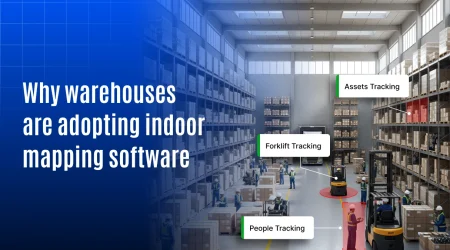6 Reasons Why AI in Fleet Management Is the Future of Fleet Operations

The fleet management industry is evolving rapidly. Smart tools are replacing traditional methods that can predict, automate and improve fleet tracking in daily operations. As technology continues to expand, AI in fleet management is becoming a real game changer. It transforms how vehicles are tracked, maintained and managed. From predicting maintenance needs to analyzing data in real time, AI is helping fleets become more efficient, safer, and sustainable
Let’s explore six reasons why AI is shaping the future of fleet operations.
1. Predictive maintenance reduces downtime
Every vehicle experiences wear and tear daily. Sudden breakdown delays delivery on time and increases repair cost.
With the help of AI, predictive maintenance can prevent :
- Sensors collect the live vehicle data to identify the faults early before they occur.
- Maintenance teams get alerts about upcoming servicing.
- Vehicles spend less time in the workshop and more time on the road.
This proactive approach not only prevents costly breakdowns but also extends vehicle lifespan — improving overall fleet efficiency.
2. Smarter route optimization saves time and fuel
AI systems process traffic data, weather forecasts, and road conditions to find the most efficient routes.
Here’s what it brings to your operations:
- Reduced idle time and fuel consumption.
- On-time deliveries and happier customers.
- Dynamic rerouting during congestion or road closures.
The result? Higher productivity, lower operating costs, and improved driver satisfaction.
3. Intelligent driver behavior analysis enhances safety
Unsafe driving habits — harsh braking, speeding, or distraction — increase accident risks.
AI identifies these patterns through:
- Advanced driver monitoring systems (DMS).
- Real-time feedback and behavior scoring.
- Training recommendations for improvement.
With AI in fleet management, safety becomes measurable and manageable — helping organizations build a culture of accountability. Many fleet companies also convert driver behavior insights into quick safety clips using an AI video generator, making training easier and more engaging.
4. Real-time decision-making with AI in fleet management
Fleet managers no longer need to rely on assumptions.
AI processes thousands of data points in seconds to support quick and informed decisions:
- Fuel efficiency comparisons across vehicles.
- Engine health and usage pattern analytics.
- Instant alerts for deviations or risks.
These insights make operations transparent, measurable, and scalable.
5. Energy efficiency and sustainability
With rising fuel prices and emission concerns, sustainability is now a top priority.
AI helps fleets transition toward greener operations by:
- Monitoring idle hours and fuel wastage.
- Recommending eco-driving routes.
- Supporting EV fleet integration and energy optimization.
The result is reduced carbon footprint, cost savings, and alignment with global sustainability goals.
6. Automated fleet management improves scalability
AI streamlines repetitive tasks — from dispatching to reporting.
Automation ensures:
- Faster job assignment and completion tracking.
- Error-free billing and report generation.
- Simplified fleet scaling as business grows.
This combination of automation and intelligence allows fleets to expand without additional operational burden.
Summary
AI in fleet management is not just a trend — it’s the foundation of the future. By enabling predictive maintenance, route optimization, driver analysis, and sustainability, AI empowers businesses to operate smarter, safer, and faster. Fleets adopting AI today are already outperforming their competitors through higher uptime and lower costs.



